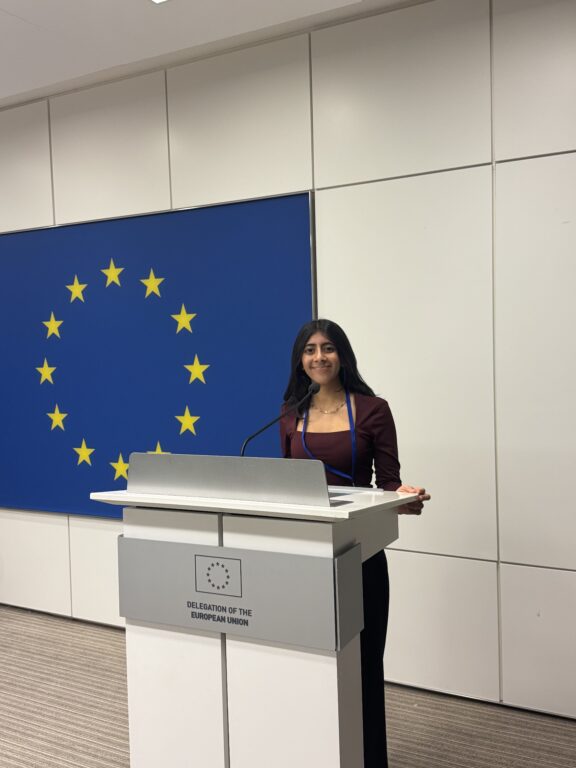
It’s easy to get information online, but harder than ever to find the truth
By: Ariya Bandy – 2022 Summer Intern
Internet algorithms have come a long way, and they are incredibly effective in making our lives easier, but it is important to understand what they do and how they affect what we find on the internet, especially when it comes to news.
According to the World Economic Forum, more people are finding their news online than ever before. More people under 50 years old are checking the news online than people over that age, and 42% of Americans between the ages of 18-29 access their digital news from social media. In other words, we are becoming increasingly reliant, not only on news on the internet, but news that is easiest to find.
Internet algorithms are meant to push content to people based on when content was created and the viewer’s interests according to Institute for Internet & the Just Society. This can be very helpful and entertaining in many ways, but while the internet can make it easier for us to learn about what is happening in the world, it is also easier for us to learn from a narrower perspective. We have more access to information than ever before, but we still need to make an active effort to find it.
I do think it is important to acknowledge the positives of internet algorithms. People today can easily find information and other content about topics in which they are interested. It is also easier than ever feel more connected. But there is so much content on the internet, it can also be overwhelming and problematic.
To start, people automatically see what they want to see. Since content is pushed out based on what people have shown interest and what has had higher engagement, especially from others with similar interests, recommended content will not have the diversity of a random search. This means people may see content that aligns with their opinions. The more we rely on recommended articles to inform us about what is happening in the world, the smaller the tunnel we are looking through.
This can lead to our society becoming more and more divided based on our having different “knowledge.” The worst part is people will often be unaware of how different the news they may be seeing could be from someone else’s, which is why it is important to understand what these algorithms do.
It is easier than ever to find information, but that does not mean it is easier than ever to find truth or the most diverse perspectives possible.
According to MIT news, this can also be dangerous, particularly on social media with the spread of misinformation and disinformation. Content that may be interesting or entertaining may reach more people, and many times incorrect information circulates due to being sensationalized or “more exciting” than true stories.
Internet algorithms help us in many ways, but it is imperative that we understand the consequences of relying on them for news. The most important step, in my opinion, is to spread the word about how news gets to us. Within these discussions, encouraging people to actively look for more diverse news sources can help us make sure we are still being intentional in our searches for information.
Talking about new itself and what we find, not just with people who agree with us, but sharing and listening to different perspectives is crucial for learning. We will not agree on everything, but we shouldn’t let laziness divide us.
Technology is becoming an increasingly prominent part of our lives, but we must control it. We must be intentional about where we look for information and not just accept the first thing we see. Technology is an extension of ourselves, so therefore we will always need to be conscious of how it impacts our lives and how we can use it as a tool and not as a force of self-destruction.
Ariya Bandy wrote this opinion piece while interning for the World Affairs Council of Harrisburg and PA Media Group. It was published here.



